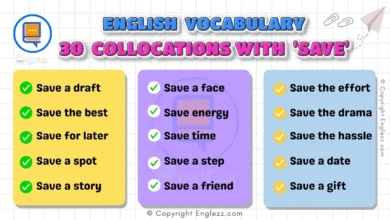Embarking on the journey of mastering writing assignments opens a realm of endless possibilities, where words wield the power to shape academic success and beyond. By uncovering the secrets to excelling in written tasks, students, educators, and parents alike can witness a transformation in performance that transcends traditional boundaries. The ability to craft compelling narratives, articulate persuasive arguments, and convey ideas with precision is not just a coveted skill – it’s a gateway to unlocking academic achievements and professional triumphs.
Table of Contents
- How To Score High in Writing Assignments Easily
- Tips for Effective Writing Assignments
- Understanding the Assignment Requirements
- Conducting Thorough Research: Gathering the Building Blocks of a Strong Argument
- Structuring your writing
- Incorporating persuasive techniques
- Developing a Strong Thesis Statement
- Using Compelling Evidence and Examples
- Empowering Students to Excel in Writing Assignments
- Empowering Students to Excel in Writing Assignments
- Frequently Asked Questions About Writing Assignments
- 1. How do I start my writing assignment effectively?
- 2. What is the importance of conducting thorough research for writing assignments?
- 3. How can I improve the structure of my writing assignments?
- 4. Why are persuasive techniques crucial in academic writing?
- 5. How can strong thesis statements contribute to successful writing assignments?
How To Score High in Writing Assignments Easily
Delving into the art of writing goes beyond penning words on paper; it delves deep into the core of communication mastery that resonates across disciplines. Whether crafting essays, reports, or research papers, every word penned holds the potential to sway opinions, ignite discussions, and spark profound insights.

In understanding this pivotal role writing plays in shaping minds and molding futures, we come face-to-face with an empowering truth: the keys to acing writing assignments aren’t merely shortcuts but stepping stones towards a journey of self-discovery and intellectual growth like never before seen. With dedicated guidance and proven strategies at your fingertips, you are poised to navigate the intricate web of writing challenges with confidence and finesse.
Are you ready to unlock these invaluable insights that will revolutionize your approach to writing assignments? Join us as we illuminate the path towards academic excellence through 7 Proven Tips tailored to elevate your writing game from standard to stellar.
Tips for Effective Writing Assignments
When facing a writing assignment, comprehending the requirements is the initial step toward success. Breaking down the task instructions meticulously helps in understanding what is expected regarding content, formatting, and deadlines. For instance, if an essay mandates a specific word count or citation style, failing to adhere to these guidelines can result in grades being deducted. To illustrate, when preparing an argumentative piece on climate change, verifying whether APA or MLA format should be employed is crucial for academic integrity.
Don’t hesitate to reach out to your educators or peers for feedback on your writing assignments. Constructive criticism can provide valuable insights into areas where you can improve, whether it’s strengthening your arguments, refining your grammar, or enhancing the overall structure of your work. By incorporating feedback into your revision process, you can continuously elevate the quality of your writing.
Conducting thorough research serves as the cornerstone of well-crafted writing assignments. By delving into credible sources such as peer-reviewed articles, books, and academic journals, you not only bolster your arguments but also display a depth of knowledge that sets your work apart. Picture this: when tasked with elucidating historical events leading to World War I in a history essay, accessing primary sources like letters or diplomatic cables can enrich your narrative and exhibit advanced research skills.
Structuring your writing cohesively enhances readability and coherence within your paper. Crafting a comprehensive outline prior to drafting ensures that ideas flow logically from introduction to conclusion. Imagine sculpting a literary masterpiece – each section seamlessly transitioning into the next like chapters in a gripping novel. By incorporating headings and subheadings effectively to delineate different sections or arguments, you provide readers with signposts that aid comprehension and overall engagement.
Effective writing assignments transcend mere information dissemination; they wield persuasive power while articulating compelling arguments. Developing a strong thesis statement acts as your beacon in the stormy sea of words. Much like planting a flag atop Mount Everest signifies conquering its summit, crafting a clear thesis not only solidifies your central argument but also guides readers through the intellectual terrain you aim to traverse. In practical terms, when discussing healthcare reforms in an opinion piece, a thesis statement asserting the dire need for universal health coverage succinctly encapsulates your stance and primes readers for ensuing arguments based on this premise.
Understanding the Assignment Requirements
One of the fundamental keys to acing your writing assignments is mastering the art of understanding the assignment requirements. When you receive an assignment, take the time to carefully dissect the instructions provided by your instructor. Pay close attention to details regarding content expectations, formatting guidelines, and submission deadlines. For instance, if your professor specifies a required word count, ensure that your writing meets this criterion to demonstrate your ability to follow directions accurately. Moreover, being mindful of citation styles, such as APA or MLA, can significantly enhance the overall quality of your work.
Imagine you are tasked with composing a persuasive essay on climate change. By thoroughly analyzing the assignment requirements, you can pinpoint essential components like incorporating scientific data or proposing viable solutions. This detailed examination helps you tailor your writing approach to align seamlessly with what is expected from you. Remember, adhering closely to the stipulated guidelines showcases your dedication and attention to detail—a trait highly valued in academic settings and beyond.
Furthermore, when navigating through assignment instructions, look out for any specific sources or reference materials requested by your professor. Whether it’s scholarly articles, books, or online resources—ensuring that you incorporate these sources not only enriches your content but also demonstrates your commitment to thorough research and academic integrity. Embracing a proactive mindset towards grasping every facet of what is expected in an assignment arms you with a roadmap for success in achieving top grades whilst honing valuable organizational skills along the way.
Conducting Thorough Research: Gathering the Building Blocks of a Strong Argument
In the realm of academic writing, research serves as the backbone upon which well-structured arguments are built. When embarking on a writing assignment, diving into thorough research is akin to mining precious gems – it’s the process that unearths valuable insights and knowledge essential for crafting compelling narratives. Imagine your assignment as a puzzle waiting to be solved, with each piece of reputable information you gather acting as a crucial fragment in completing the picture. By engaging in meticulous research practices, students have the opportunity to elevate their writing from mere words on paper to impactful, evidence-based compositions that resonate with their audience.
While the digital age has granted us unprecedented access to information at our fingertips, navigating through this vast sea of data can be overwhelming. It’s vital for students to discern credible sources from dubious ones, ensuring that their arguments are supported by reliable information. By utilizing reputable online databases or venturing into libraries brimming with scholarly articles and authoritative books, students can fortify their writing with evidence-backed content that enriches the depth and credibility of their work. Think of research not as a mundane task but rather as an exciting exploration where each source discovered contributes layers of substance to your writing canvas.

Moreover, effective research doesn’t just involve locating facts—it also entails understanding the context and relevance of the acquired knowledge within the framework of your assignment. For instance, when composing an argumentative essay on climate change, extracting statistics from peer-reviewed journals or governmental reports can bolster your stance significantly.
By immersing yourself in diverse sources across various mediums — from academic papers to expert interviews — you enrich your understanding of the topic and gain multifaceted perspectives that enhance the overall quality of your writing. In essence, conducting thorough research isn’t merely about gathering data; it’s about curating a tapestry of information that weaves together seamlessly in support of your central thesis.
Structuring your writing
Structuring your writing is like building a strong foundation for a house; it ensures that your ideas are presented logically and cohesively. One key strategy to enhance the structure of your writing assignment is to create a well-defined outline before diving into the actual writing process. By outlining your main points, arguments, and supporting evidence, you can avoid meandering and stay focused on delivering a clear and organized paper from start to finish. Imagine your outline as a roadmap that guides both you as the writer and your readers through the content smoothly.
In addition to creating an outline, utilizing headings, subheadings, and paragraphs effectively can significantly improve the readability of your writing. These formatting elements act as signposts for your readers, signaling transitions between ideas and helping them navigate through your work with ease. For instance, if you’re working on an essay about climate change, using headings such as “Causes of Climate Change” or “Impact on Biodiversity” not only breaks down complex information but also makes it more digestible for your audience. Paragraphs should each focus on a distinct idea or argument, contributing to a cohesive flow throughout the assignment.
By implementing these structuring techniques in your writing assignments, you not only enhance the clarity of your work but also demonstrate a high level of organization and professionalism in your approach. Remember, effective structuring is not just about aesthetics; it plays a crucial role in conveying your message persuasively and engagingly to your readers. Embrace these practices as tools to elevate the impact of your writing assignments while showcasing your analytical skills and ability to present complex ideas in a coherent manner.
Incorporating persuasive techniques
Incorporating persuasive techniques in your writing can elevate the impact of your arguments and captivate your audience. One powerful technique is storytelling – integrating personal narratives or relatable anecdotes can make your writing more engaging and memorable. For instance, when discussing the importance of environmental conservation, weaving in a story about a local community’s efforts to reduce plastic waste can resonate deeply with readers, inspiring them to reconsider their habits. By connecting emotionally with your audience through storytelling, you can effectively convey complex ideas in an accessible manner.
After completing a draft of your writing assignment, take the time to carefully proofread and edit it. Look out for spelling errors, grammatical mistakes, and inconsistencies in formatting. Reading your work aloud can also help you identify awkward phrasing or unclear sentences that may need refinement. Remember, polished writing demonstrates a commitment to excellence and can leave a lasting impression on readers.
Additionally, employing rhetorical devices such as parallelism or repetition can enhance the persuasiveness of your writing. These devices create rhythm and emphasis, drawing attention to key points and reinforcing their significance. When crafting a persuasive essay advocating for community service, utilizing repetition of phrases like “Together we can make a difference” can instill a sense of collective responsibility and motivation among readers. By harnessing these rhetorical tools thoughtfully, you can amplify the persuasiveness of your arguments and leave a lasting impression on your audience.
Moreover, incorporating counterarguments into your writing demonstrates critical thinking and strengthens the credibility of your stance. Addressing potential objections preemptively shows that you have considered different perspectives and are confident in defending your position. For example, when discussing the benefits of technology in education, acknowledging concerns about screen time distractions but emphasizing the educational advantages technology offers showcases a nuanced understanding of the topic. By engaging with opposing viewpoints respectfully and articulately countering them, you showcase maturity and enhance the overall persuasiveness of your arguments.
In conclusion, mastering persuasive techniques in writing not only enhances the quality of your assignments but also equips you with invaluable communication skills essential for academia and beyond. Experimenting with diverse approaches such as storytelling, rhetorical devices, and addressing counterarguments allows you to craft compelling narratives that resonate with readers on a deeper level. By honing these persuasive skills alongside solid structural foundations in writing assignments, you empower yourself to excel academically while refining your ability to influence others effectively through written communication.
Developing a Strong Thesis Statement
Crafting a compelling thesis statement is like planting the seed that will grow into a well-structured and persuasive piece of writing. A thesis serves as the roadmap for your paper, guiding both you as the writer and your readers on the journey ahead. For instance, imagine you’re tasked with writing an argumentative essay on climate change. Your central thesis should clearly present your stance, such as “Human activities are the primary cause of global warming,” setting the stage for the arguments you’ll later develop to support this claim. As such, laying a strong foundation in your introduction ensures coherence throughout your assignment.
Moreover, specificity is key when formulating your thesis statement. Instead of opting for a vague assertion like “Climate change is bad,” consider refining it to something more precise and thought-provoking, such as “The increased frequency and intensity of natural disasters worldwide signify the urgent need for sustainable environmental policies.” This refined approach not only sharpens your focus but also challenges you to delve deeper into research and analysis to strengthen your position persuasively.
By establishing an impactful thesis early in your writing process, you set a clear direction for your work, maintaining a cohesive narrative that guides readers through your arguments logically. Remember, a robust thesis isn’t merely about stating facts; it should spark curiosity, generate discussions, and prompt critical thinking among readers. Ultimately, mastering the art of crafting strong thesis statements elevates not only the quality of your assignments but also hones your ability to articulate complex ideas effectively.
Using Compelling Evidence and Examples
To elevate the quality of your writing assignments, integrating compelling evidence and examples is paramount in substantiating your arguments convincingly. Imagine you are constructing a strong house; evidence and examples serve as sturdy bricks that fortify your writing structure. When incorporating statistics, ensure they are from reputable sources such as government publications or scholarly research to lend credibility to your assertions. For instance, when discussing the impact of climate change, citing data from scientific reports or studies conducted by environmental organizations can add weight to your stance.
Moreover, weaving in case studies offers tangible illustrations that bring abstract concepts to life for your readers. Consider an essay on marketing strategies where including a real-world case study about a successful brand’s campaign can provide practical insights into the application of theoretical concepts. These examples not only validate your arguments but also offer a practical context for readers to grasp complex ideas more easily. Remember, the goal is not merely to inform but also to engage and persuade through relevant and impactful instances that resonate with your audience.
Effective time management is essential when tackling writing assignments. Break down larger tasks into manageable sections and create a realistic timeline for completion. Procrastination can lead to rushed work and diminished quality, so prioritize setting aside dedicated study sessions for research, drafting, editing, and revising. By staying organized and disciplined in managing your time, you can alleviate last-minute stress and produce higher-quality written work.
For those seeking to make their writing more engaging, incorporating anecdotes can be a powerful tool. Personal stories or experiences related to the topic at hand humanize your content and create connections with readers on an emotional level. Suppose you are discussing the importance of cultural diversity in education; sharing a personal anecdote about how exposure to different perspectives transformed your worldview can enhance the authenticity and relatability of your piece. By infusing your writing with real-life narratives, you invite readers into a shared experience that deepens their understanding and leaves a lasting impression long after they finish reading.
Empowering Students to Excel in Writing Assignments
In conclusion, mastering the art of effective writing is a transformative skill that not only elevates academic performance but also nurtures essential communication abilities critical for success in various fields. By incorporating the proven tips outlined above into their writing routines, students can significantly enhance their performance on assignments. Through structured research, clear thesis statements, and compelling evidence incorporation, students can create impactful pieces that resonate with readers and showcase their analytical prowess.
Moreover, taking a strategic approach to writing assignments extends beyond achieving good grades; it cultivates vital skills such as critical thinking and analytical reasoning. These fundamental competencies play an integral role in academic pursuits by sharpening students’ ability to evaluate information, form coherent arguments, and present ideas cohesively. As students implement these strategies consistently, they not only excel academically but also develop a lifelong proficiency in effective communication methods that extend far beyond the classroom.
For instance, when students apply meticulous research techniques to gather compelling evidence for their writing assignments, they cultivate a habit of thorough investigation that can serve them well in future endeavors. Similarly, honing the skill of structuring arguments logically enables individuals to convey complex ideas succinctly and persuasively. By empowering students with these valuable tools and insights, we equip them not just for academic success but also for the challenges and opportunities they will encounter throughout their educational journey and beyond.
Empowering Students to Excel in Writing Assignments
In a world where effective communication skills play a pivotal role in academic success, mastering the art of writing is not just an option but a necessity. By implementing the seven proven tips to ace writing assignments discussed in this article, students can transform their approach to academic writing and elevate their performance to new heights. Understanding assignment requirements, conducting thorough research, and structuring writing effectively are foundational elements that pave the way for impactful written work.

Moreover, by incorporating persuasive techniques like crafting strong thesis statements and using compelling evidence, students can not only meet expectations but exceed them by presenting well-structured arguments supported by credible sources. Embracing these strategies doesn’t just lead to higher grades; it nurtures critical thinking skills and analytical abilities essential for navigating the complexities of academia and beyond. When armed with these tools, students become empowered to express themselves eloquently, persuasively, and with clarity in their writing endeavours.
Frequently Asked Questions About Writing Assignments
1. How do I start my writing assignment effectively?
– Begin by carefully reading and understanding the assignment instructions. Create a plan outlining your approach before diving into research and writing.
2. What is the importance of conducting thorough research for writing assignments?
– Research provides credibility to your arguments and enriches your content with varied perspectives or evidence supporting your claims.
3. How can I improve the structure of my writing assignments?
– Use clear headings and subheadings to organize your ideas logically, aiding both you as the writer and your readers
4. Why are persuasive techniques crucial in academic writing?
– Persuasive techniques help you engage your audience effectively while presenting compelling arguments that support your stance.
5. How can strong thesis statements contribute to successful writing assignments?
– A strong thesis statement acts as the backbone of your paper, guiding its direction while clearly stating your position or argument.
By implementing these additional tips alongside the strategies discussed earlier in this article, you’ll be well-equipped to excel in writing assignments with confidence and finesse. Remember that continuous practice and a growth mindset are key ingredients for success in mastering the art of effective written communication.
Remember, excellence in academic writing is not an unattainable goal but rather a skill that can be honed through practice, dedication, and strategic application of these tips. As students embark on their journey towards mastering effective written communication, they equip themselves with invaluable tools that will serve them well beyond the confines of classrooms into a future bright with possibilities.








